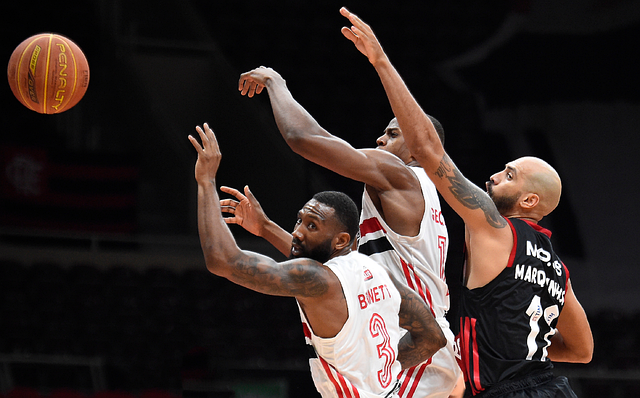Criteria for Choosing the Greatest NBA Players
Selecting the greatest NBA players demands a careful evaluation of multiple factors. Each player’s career achievements, impact on the game, and longevity and consistency matter in this assessment.
Career Achievements
Career achievements serve as key indicators of a player’s greatness. Points scored, rebounds, assists, and steals are essential statistics. NBA championships, MVP awards, All-Star selections, and inclusion in All-NBA teams deeply impact these considerations.
| Achievement | Example Players | Explanation |
|---|---|---|
| Points Scored | Kareem Abdul-Jabbar | All-time leading scorer |
| NBA Championships | Bill Russell, Michael Jordan | Multiple titles indicate team success |
| MVP Awards | LeBron James, Tim Duncan | Dominant individual performance over seasons |
| All-Star Selections | Kobe Bryant, Shaquille O’Neal | Consistent recognition of excellence |
Impact on the Game
Impact on the game reflects how a player changes basketball. Innovations, leadership, and off-court influence matter.
Players like Magic Johnson and Larry Bird redefined their positions and brought more attention to the NBA. Specific rule changes or trends often follow game-changing players.
Longevity and Consistency
Longevity and consistency highlight a player’s sustained excellence. Playing many seasons at a high level reveals dedication and resilience.
Take Kareem Abdul-Jabbar, whose career spanned 20 seasons, or Dirk Nowitzki, who consistently performed for over 21 seasons. These factors ensure a player’s long-term influence and reliability.
By examining career achievements, impact on the game, and longevity and consistency, I evaluate these basketball legends for their true greatness.
Notable Legends of the Past
Basketball history is rich with extraordinary players who have shaped the sport. Several iconic figures stand out for their impact, achievements, and influence, making them timeless legends.
Bill Russell
Bill Russell redefined defense and team play. Winning 11 NBA championships, he holds the record for the most titles won by a player.
His shot-blocking, rebounding, and leadership solidified the Boston Celtics’ dominance in the 1950s and 1960s. Russell’s defensive prowess earned him five MVP awards and 12 All-Star selections.
Michael Jordan
Michael Jordan is considered by many to be the greatest NBA player. Winning six NBA championships with the Chicago Bulls, he collected five MVP awards and 14 All-Star selections.
Jordan’s influence extended off the court, revolutionizing basketball’s global popularity and branding. His scoring ability, demonstrated by 10 scoring titles, and clutch performances left an indelible mark on the sport.
Kareem Abdul-Jabbar
Kareem Abdul-Jabbar dominated the NBA for two decades with an unstoppable skyhook shot. He remains the all-time leading scorer with 38,387 points.
His accolades include six NBA championships and six MVP awards. Abdul-Jabbar’s consistent performance over 20 seasons and his impact on and off the court, including his advocate role, make him a true legend.
Influential Players of the Modern Era

Recognizing the greatest NBA players involves examining recent legends who have redefined the game in notable ways. Among these icons, LeBron James and Kobe Bryant stand out for their unparalleled contributions.
LeBron James
LeBron James has consistently impressed with his versatility and athleticism throughout his career.
With over 35,000 points, 9,000 assists, and 9,000 rebounds, he’s one of only two players to achieve these milestones, along with Kareem Abdul-Jabbar.
As a four-time NBA champion, LeBron has led three different teams to titles, demonstrating his ability to adapt and excel in varying environments. His four MVP awards highlight his dominance and critical role in each of his teams.
LeBron’s impact extends beyond stats. He has influenced the game’s style and pace, emphasizing positionless basketball.
His off-court endeavors further cement his legacy, with significant contributions in promoting social justice and providing educational opportunities through the LeBron James Family Foundation.
Kobe Bryant
Kobe Bryant’s legacy is defined by his scoring prowess and clutch performances. He ranks fourth on the all-time scoring list with 33,643 points. Known for his “Mamba Mentality”, Kobe’s work ethic and competitive drive became legendary.
He won five NBA championships with the Los Angeles Lakers, securing two Finals MVP awards.
Kobe made 18 All-Star appearances, demonstrating his lasting impact and popularity. His dedication to the game manifested in iconic moments, like his 81-point game against the Toronto Raptors in 2006, the second-highest scoring performance in NBA history.
Beyond his on-court achievements, Kobe’s influence extended to mentoring younger players and contributing to women’s basketball, notably through his support and coaching efforts.
Statistical Giants and Unsung Heroes
The NBA features legends whose statistics define their greatness and others who made indelible contributions unnoticed by the masses.
High Scoring Averages
High scorers like Michael Jordan and Wilt Chamberlain stand out with their points per game averages. Jordan, with a career average of 30.1 points, dominated the 1990s, earning six NBA championships.
Wilt Chamberlain once averaged 50.4 points per game in the 1961-62 season, an unparalleled feat. These players set scoring benchmarks that others strive to reach.
Defensive Masters
Defensive prowess often separates good players from great ones. Bill Russell, who won 11 NBA championships, exemplifies this with his shot-blocking and rebounding skills.
Hakeem Olajuwon, with two Defensive Player of the Year awards, also stands out. His defensive contributions, including a record 3,830 blocks, earned him a top spot among the game’s elite defenders.
Comparing Eras in NBA History
NBA history spans decades, each era marked by unique changes in rules and playing style. Comparing these eras involves examining several key factors.
Changes in Rules and Style of Play
Rule changes and evolving styles shape the NBA landscape.
- In the early years, games focused on physical defense and inside scoring.
- The 1950s saw fewer three-point attempts and rigorous hand-checking.
- The introduction of the three-point line in 1979 fundamentally changed offensive strategies, emphasizing perimeter shooting.
- Defense also evolved, with rules like the hand-check ban in 2004 promoting offensive freedom.
- Zone defenses, once illegal, added strategic diversity, allowing teams to stifle star scorers.
These changes impacted how players excelled, influencing their playing style and career stats.
Advancements in Training and Health
Modern players benefit from significant advancements in training and health. In earlier eras, players had limited access to fitness technology and nutritional guidance.
Today, athletes use advanced analytics and biomechanics to optimize performance and minimize injury risk.
Training regimens now include:
- personalized workout plans
- precise load management
- recovery protocols
This ensures athletes maintain peak performance across long seasons.
Additionally, improvements in medical treatments and preventive care extend players’ careers, allowing them to achieve longer-lasting success on the court.
LeBron James, for instance, invests heavily in his physical well-being, showcasing the benefits of modern health advancements.
These factors highlight how different eras shaped the careers of the greatest NBA players.


